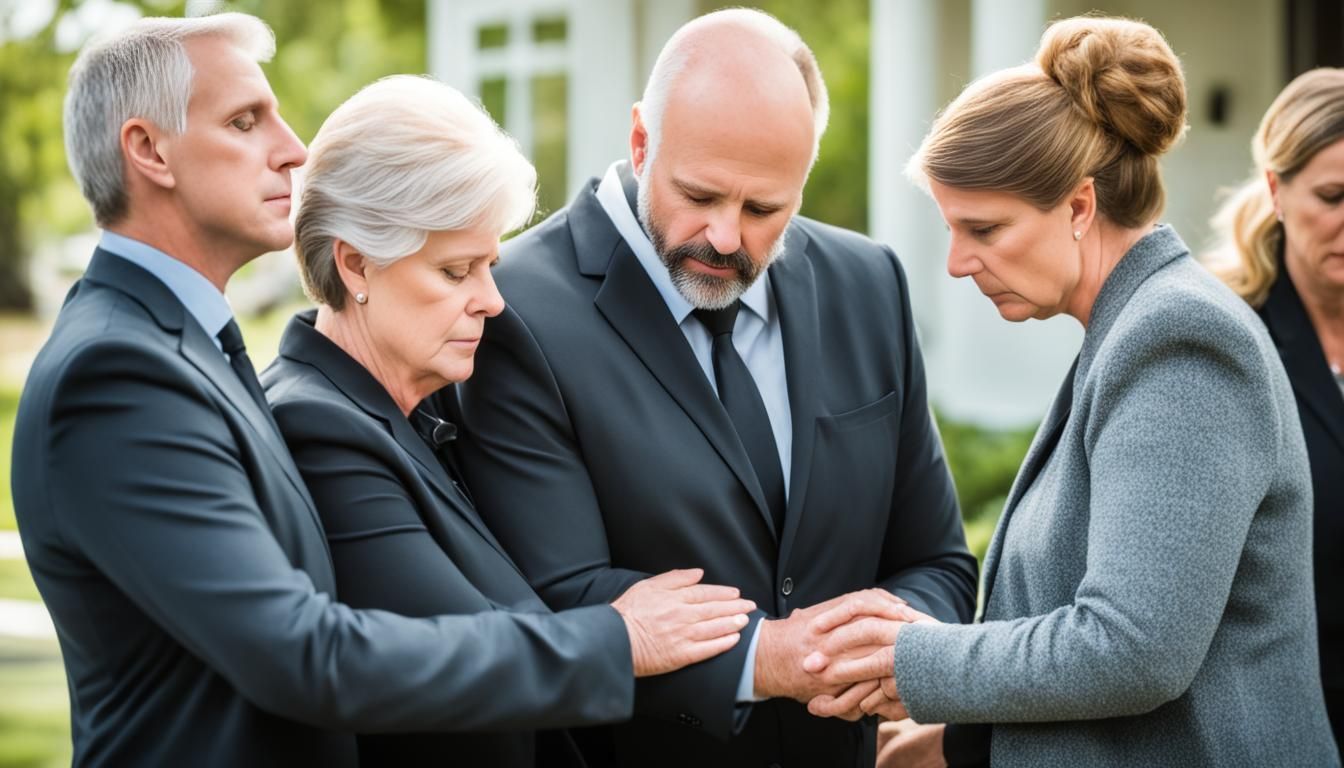What to do with a Loved One's Facebook After Passing
What to Do with a Loved One's Facebook After Passing
In our digital age, we all leave marks on social media. These marks stay behind as our legacy. Facebook, with its 2.74 billion users, acts as both a current space for interaction and a remembrance site. When we lose someone close, we face a big question: what to do with loved one's facebook account after they passed away ?
Imagine a family member, whose laughter filled every room. Their online presence was a bright part of who they were. Handling their Facebook account after they’re gone becomes a gentle duty. We must delicately choose how to handle their account. It can be kept as an unchanged reminder, memorialized as a tribute, or deleted for closure. Each option carries emotional significance.
As we remember them, we face the steps of managing their digital footprint. Facebook’s policies give us ways to find peace and order in these tough times. We can assign a legacy contact or manage the account with dignity. Here, the support from places like Edwards Funeral Service helps us through our sorrow. They guide us with care.
Key Takeaways
- Knowing what to do with a Facebook account after someone dies is key to handling their digital legacy.
- Facebook lets a family decide to memorialize the account or delete it, depending on set preferences.
- Deciding on an account’s fate after death involves careful choices laid out by Facebook's policies.
- Memorialized accounts become places for sharing memories and tributes under a 'Remembered' status.
- Edwards Funeral Service offers help in managing online presence after a loss, in addition to funeral services.
Thinking over the connections we keep with the past and future, we honor our loved ones. Managing their digital presence is a way to celebrate their life and the love that stays even after they're gone.
Understanding Your Options for a Deceased Loved One's Facebook Account
When a loved one passes, taking care of their Facebook matters a lot. It’s a way to honor them. You can keep their account open, turn it into a memorial, or close it. Each choice reflects how you want to remember them online.
Leaving the Account Active Versus Memorialization
Deciding to keep a loved one’s Facebook account active or to memorialize it is a big choice. An active account stays the same but may face security risks. A memorialized account is safe and clearly shows the person has died. This affects how people interact with the account.
Memorializing a deceased family member's social media account allows friends and family to see "Remembering" next to their name, preserving their memories in a dignified way.
Securing the Account: Preventing Unauthorized Access
Keeping a loved one's Facebook safe is key. Memorialization locks the account while keeping it viewable, which is good for privacy. It's important for managing someone’s online presence after they die with dignity.
- No new friends can be added.
- Existing friends can still post on the wall in remembrance.
- Content the deceased shared remains visible.
The Role of Facebook's Automatic Memorialization
Facebook might automatically memorialize an account if it learns of a death. This protection stops misuse. It makes sure the profile stays a place for loved ones to remember.
Knowing your options makes it easier to respect a loved one’s memory online. Whether keeping the account open, memorializing, or deactivating, each choice matters for their legacy and privacy.
Conclusion
After someone close dies, deciding what to do with loved one's Facebook account after they passed away is important. It's like keeping a valuable family treasure safe. This is because their profile helps friends and family remember good times together.
Figuring out how to handle a deceased loved one's Facebook account is tricky. It’s about respecting their memory online while keeping their information safe. Companies like Edwards Funeral Service help with this. They offer support, whether you want to keep the account active as a memorial or delete it. This helps safeguard your loved one's online presence.
In our digital world, we find new ways to honor those who passed away. Dealing with their online profiles is now part of grieving and remembering them. As technology evolves, handling these digital legacies carefully is a way to show our love. It celebrates the lives that mean so much to us.
FAQ
How can I manage my loved one's Facebook account after they have passed away?
After someone passes away, you have a few options for their Facebook account. You can keep it active, request to memorialize it, or ask to delete it. Memorializing makes it a space for sharing memories.
To keep the account safe, it's best to memorialize or delete it. This prevents anyone from accessing it without permission.
What does it mean to memorialize a Facebook account?
Memorializing a Facebook account makes it secure. No one can log in, but the shared content stays visible. The profile shows 'Remembering' next to the name. This tells visitors the account is a memorial.
Friends can post tributes based on the account's privacy settings. This allows the memory of the loved one to live on.
Can I choose to leave a deceased loved one's Facebook profile active?
Yes, you can leave the profile active. This means it stays unchanged, not memorialized or deleted. But think about security risks. The account could be hacked or misused.
How do I set up a legacy contact for my Facebook account?
To set a legacy contact, visit your Facebook settings. Go to 'Memorialization Settings' and choose a friend or family member as your legacy contact. They can manage parts of your account after you're gone.
What is required to memorialize or remove a deceased individual's Facebook account?
You'll need to give Facebook proof of the death, like an obituary or death certificate. To remove an account, the same proof is needed. Family might also need to show their relationship to the deceased.
What is Facebook's automatic memorialization process?
Facebook might automatically memorialize an account if they learn of a user's death. This can be through user reports or other verification. It secures the account and labels it as memorialized for friends and family to see and post tributes.
What options are available for handling a deceased loved one's digital legacy on social media?
For a deceased person's digital legacy, you can keep their accounts active, memorialize them, or delete them. It's wise to set a legacy contact and make digital legacy plans ahead of time.
Who can request changes to a deceased person’s Facebook profile?
Immediate family or the estate executors can ask for changes to a Facebook profile. They must provide proof of death and their authority, like estate documents or power of attorney.
How does memorialization on Facebook help with the grieving process?
Memorialization lets people continue sharing memories and messages on the deceased's profile. It creates a digital space for mourning together. It helps keep the connection to lost loved ones alive.
Can anyone post on a memorialized Facebook account?
Posting on a memorialized account depends on its privacy settings before death. If friends were allowed to post, they still can after it's memorialized.
What is the best way to protect a deceased loved one's online presence?
To protect a deceased's online presence, memorialize or delete their social media. This keeps the account secure from unauthorized access while preserving their digital footprint.
Can I still message a memorialized Facebook account?
Yes, you can still message a memorialized account. Though no one can log in, the messages and account contents stay accessible.










